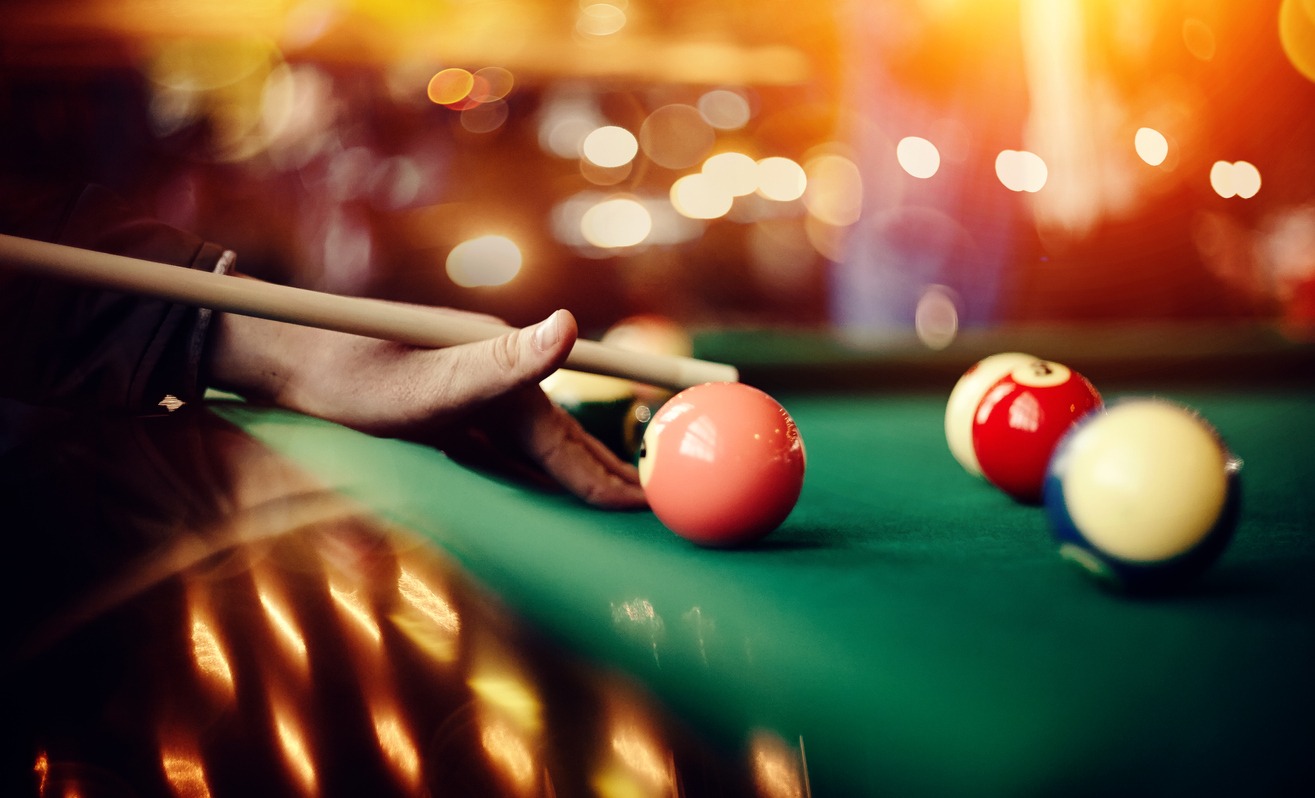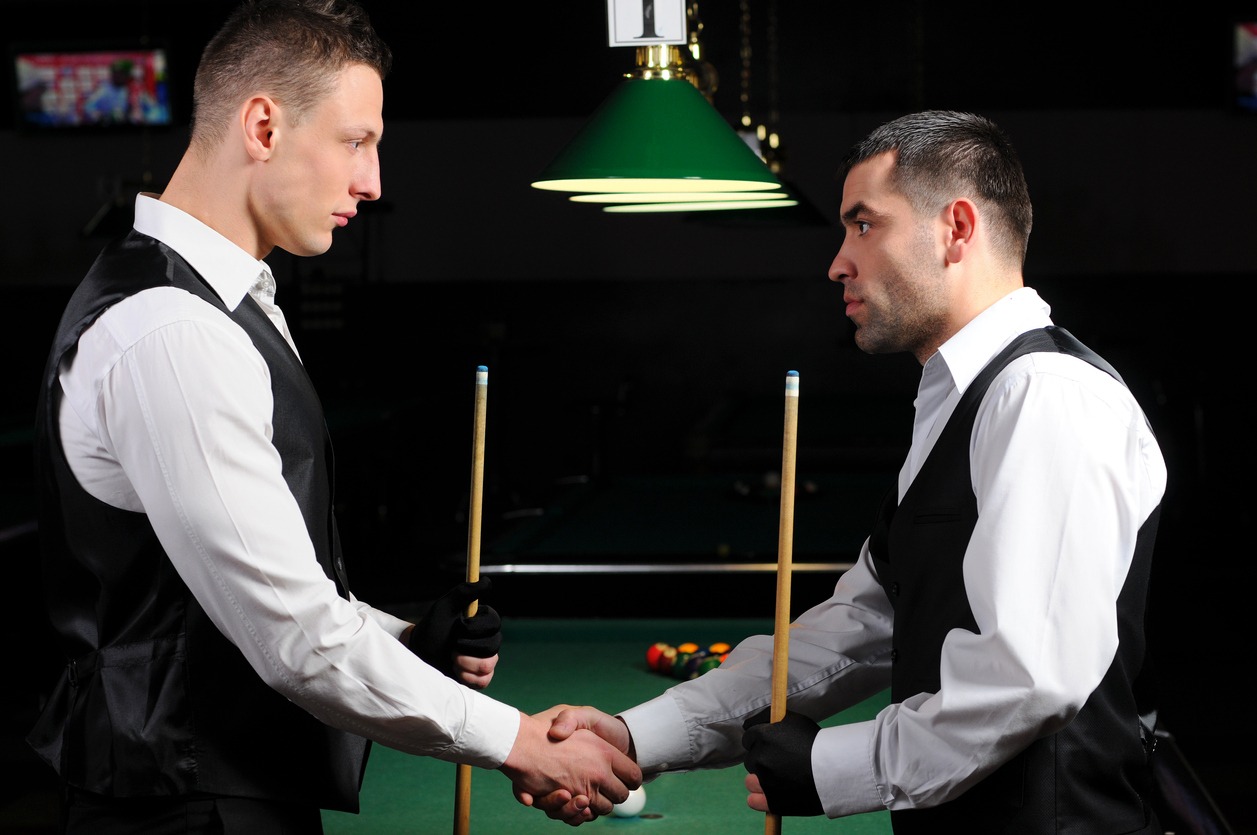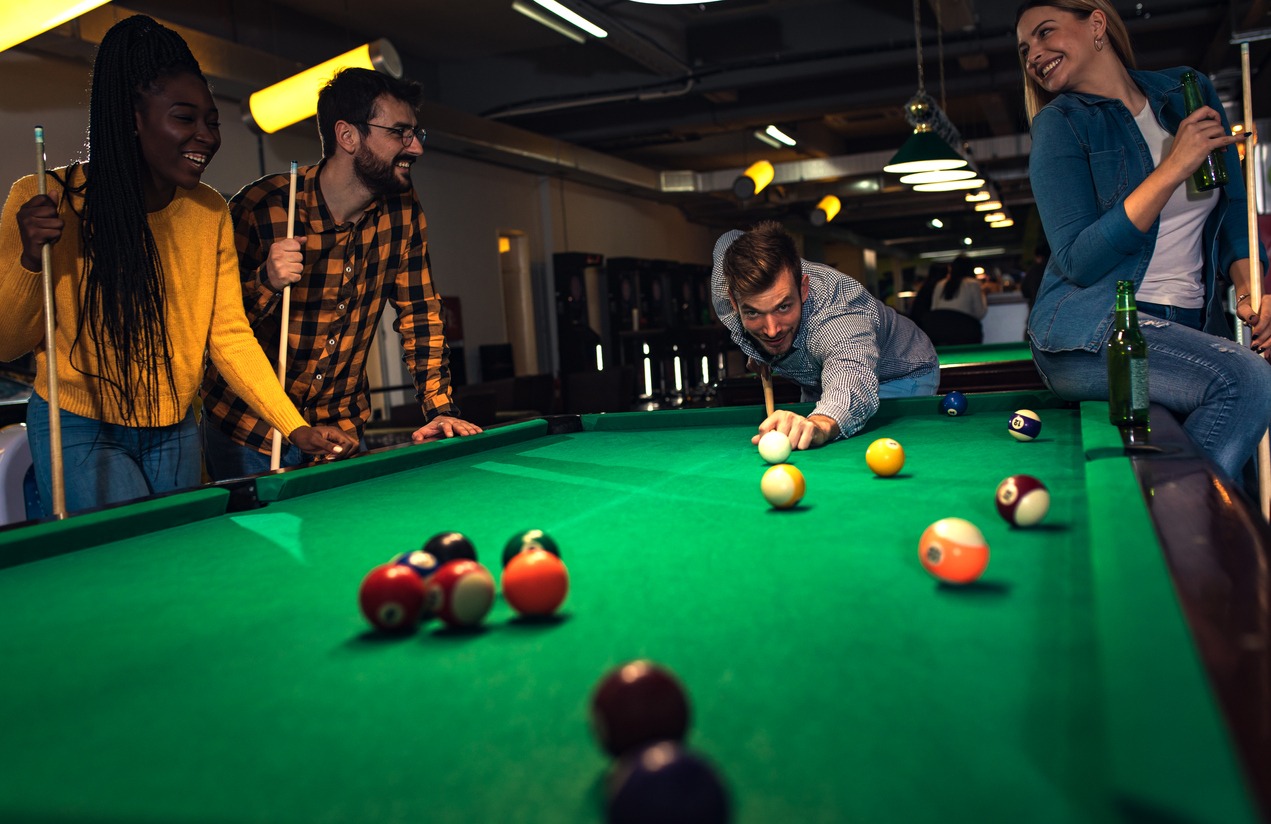Billiards and pool are both cue sports that involve hitting balls with a cue stick on a rectangular table covered with cloth. However, they are distinct games with some key differences such as table size, rules, scoring and gamplay variations.
However, billiards and pool share several similarities in terms of etiquette, reflecting the sportsmanship and respect expected from players. These sports have a reputation for being games where gentlemanly behavior is expected.
A Gentleman’s Game
It’s important to note that both billiards and pool have numerous variations and regional differences, contributing to their complex histories. Over time, various rule sets and game types emerged, such as the American-style eight-ball, nine-ball, and straight pool, each with its own unique characteristics.
Collectively, billiards and pool have roots dating back centuries, with billiards evolving from outdoor games into an indoor table game associated with the nobility, and pool originating as a betting game in Europe that eventually spread to the United States. Both cue sports have rich histories and have continued to evolve into the diverse games we know today.
In these cue games, winning is ultimately the goal, no doubt about that. But it’s also crucial to remember and honor the sport’s traditions. The essence of all cue sports is to play with sportsmanship and good manners. Here are a few things to keep in mind when playing billiards and pool:
Shaking hands or exchanging fist bumps is a widely recognized and anticipated tradition. Everything should start with a greeting and end on good terms. Keeping up with this practice before and after your game is a customary display of sportsmanship, regardless of the game’s outcome or your personal feelings toward your opponent. Keep your handshakes firm and sincere. A good word or two would be a nice touch, too. It’s good to wish each other the “best of luck” before a game and commend or thank your opponent with a handshake afterwards.
Do not put your beverages on the table. Placing drinks on the pool table is considered improper conduct. They not only occupy space but can also create a mess if they accidentally spill while you’re navigating around the table. It also makes it difficult for players to take good shots with glasses and bottle in the way. If you’re enjoying a drink while playing – which is often the case – it is better to set your bottles on a nearby counter.
Give your opponent some room during their turn. Refrain from standing too close or leaning over the table to anticipate their shots. Give them the space they need, and your turn will come soon enough. Whether you’re actively participating in a match or simply observing as a spectator, it’s essential to provide the player at the table with ample room.
Gathering closely around the table, eagerly anticipating your turn, goes against the principles of sportsmanship. Instead, opt for a seat or a standing spot that’s unobtrusive and wait patiently for your opportunity to step up to the table.
Steer clear of distractions, whether intentional or unintentional. Deliberately trying to distract your opponent with noises or actions is unsportsmanlike and lacks decorum. Consider how you’d feel if the same were done to you when it’s your turn to take a shot.
Keep out of your opponent’s line of vision when they’re taking their shot. Avoid wandering around and positioning yourself directly in a player’s eyeline while they’re aiming. If you happen to be in the line of the shot already, it’s fine as long as you stay still and maintain a reasonable distance from the table, meaning you’re not leaning over the pocket.
Try to be still. When you are within the view of a player preparing to take a shot, make an effort to stay stationary and avoid any unnecessary motion. Your actions and movements have the potential to cause distractions, so it’s important to be mindful when near the table.
Minimize chit-chat. Certain players require focus while playing pool, so if your opponent responds with short answers during a chat, it’s a signal to keep the conversation to a minimum. Unless, of course, you’re playing with your buddies then a bit of banter is expected. If you’re chatting near a competitive game, tone it down a bit. Loud conversations can mess with the player aiming their shot and make them miss.
Take your time, but don’t overdo it! Showing up late for your matches or consistently dragging out your shots isn’t very sportsmanlike. Make an effort to be punctual for league games and keep track of when your match is scheduled.
If you suspect you might be on the slow side, it’s a good idea to check with your teammates and have them time your shots. If your average shot time goes beyond 45 seconds, chances are you’re a slow player.
Don’t celebrate a miss. Sure you’d feel relieved when your opponent misses but it’s considered bad behavior to verbally and physically display joy or excitement at another player’s misfire. Be graceful when the tables are turning favorably for you.
Acknowledge good shots. Be a gentlemen and allow yourself a healthy appreciation of your opponent’s technique. Clap on the side, tap cheeringly or nod approvingly. It wouldn’t hurt you one bit.
Do not concede. If a player begins to dismantle their cue or heads toward the table for a new game, they’re basically giving up. In most cases, it’s considered impolite to concede a game before all the balls are sunk. It’s a good practice to complete every game, even if the winning shot(s) seem like a piece of cake.
Conclusion
When engaging in a game of pool or billiards, it’s crucial to observe good manners to prevent any unpleasant incidents. In the heat of a match, emotions can escalate, potentially leading to raised voices, physical altercations, broken items, and other undesirable consequences. Whether you’re playing in a bar or any setting, it’s important to keep your composure and exhibit proper playing etiquette. This way, everyone at the table can enjoy themselves, regardless of the game’s outcome.




